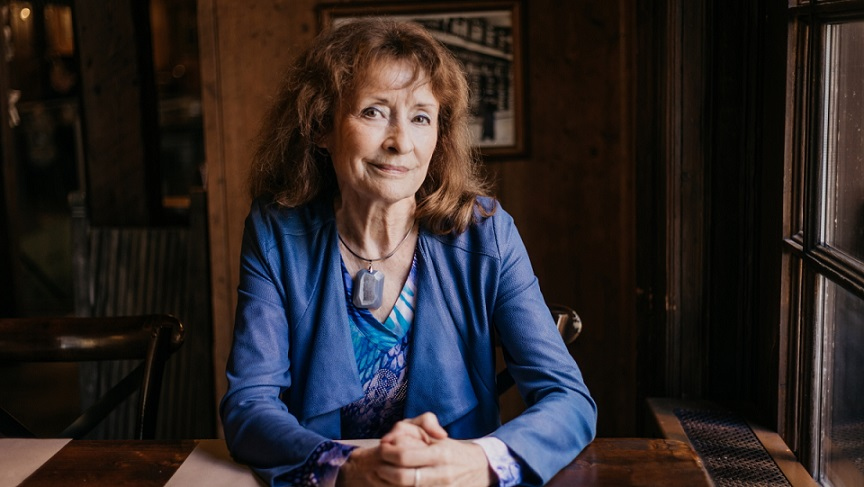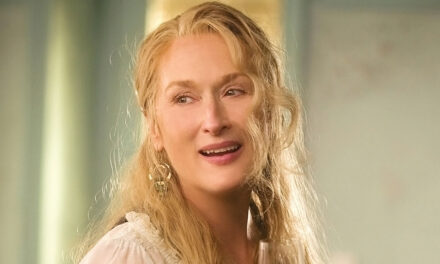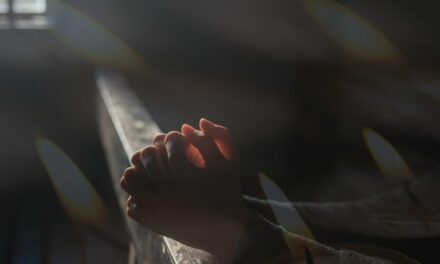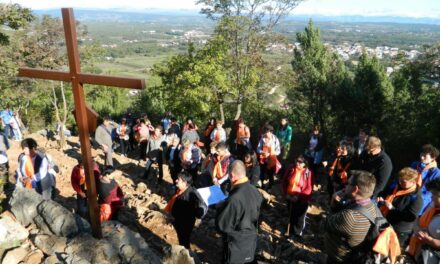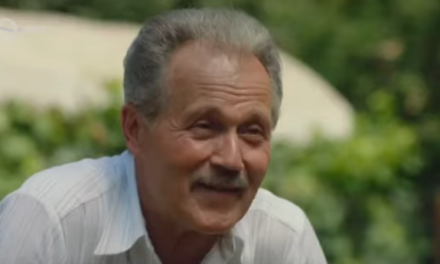"Normal people have no problem with gays, but they do with abnormality. When they want to force their views on you," says Katalin Kondor, who has been on the radio for decades and hosted the political magazine program A Hét on Hungarian Television.
You have a strong attitude. I suspect that he got the basics in Debrecen, where he was born into a Reformed family.
I definitely got the basics from them, obviously the independence as well. We lived in the garden city and it is obvious that the world came much later when, as is the case recently, children are taken to school by car. No matter how far away someone lived, it was completely natural for us to walk to school alone as children. The rural people boarded the train alone to go to school in Debrecen. We were more independent then than children are today. I remember when I was seven years old I declared that I would go to the opening ceremony alone.
How was the school?
It was far away. Definitely for a small child.
What did your parents say?
They let me go. They knew my stubborn and independent nature. My grandmother and her brother also lived in the house with us. My aunt said she would accompany me, but I didn't ask her to. I was walking proudly towards the school, then suddenly I noticed that he was following me on the other side of the road, a little behind. It affects me to this day, and even though it's too late, I'm ashamed that I hurt you. Because he scared me.
He stated somewhere that as a small child he regularly sat in St. Anna's church after school. What attracted you?
The beauty. And that I can go in alone, since at noon, when school ended, no one was there. As you mentioned, right?
our family is Reformed, for a small child the more ornate Catholic church seemed more interesting.
I sat down and just watched, I couldn't get enough of her beauty. I almost never went home right after school until the end of high school. I wandered around the city to see all the sights. My poor grandmother died thinking that school would last until four o'clock in the afternoon.
If I count correctly, he was ten years old in 1956. How much did he understand the revolution?
It stayed with me. When the Russians came in on November 4, the entire Soviet army marched towards Pest next to our house, since our house was along road 4, which was the main road to Budapest at the time. The tanks roared for hours, and if there was a break between two tanks, people could sneak over to the other side. I also went over to my girlfriend. My father also just looked at the many tanks and then said bitterly: with so many tanks you can destroy not only a city, but also an entire country. And I only found out later that the first death of the revolution was in Debrecen, because the ÁVÓ shot into the protesting crowd. I also remember that the red star was shot from the top of the gate of the brush factory on our street. The revolutionaries, I suppose.
I read that as a child trained to be a doctor, he graduated from a university of economics. Why?
It was a mistake. If there was something that was far from me, it was economics.
Then why?
Because I imagined silly things. This is a longer story, but the gist of it is that as the graduation was approaching, a rather meager university information booklet was also published. I read and read, and decided in my great arrogance that I would choose the university where I had to enroll in the most subjects. Because it's obviously the best. This was the story of the University of Economics and my stupidity.
He started his radio career at Magyar Rádio in 1972, fifty years since Idestova. Which show did you like to make the most?
I gladly made them all. During my entire radio career, I had the opportunity - not only for me, but for everyone - to work in any program if the host of the program called. So I could and did try everything. There wasn't a minute of my work as a program producer that I didn't like. Most of you probably know me as the editor and presenter of the Saturday morning Krónika, towards the end of my career.
He also said somewhere that he could produce material on anything at Magyar Rádio, except sports, since György Szepesi did not want female reporters.
Gyuri always denied this, but he really didn't employ women. Then, much later, the ice broke, and today there are many female sports reporters, and they are very good!
Being on the radio in the 1970s was not easy. Have your materials been censored many times?
I'd rather say that
people with a dark past tried to tie me in and put me in the background many times, but somehow - not easily - I survived.
The communist branch never liked me.
When he was elected president of Hungarian Radio in 2001, he was also attacked, precisely because he was an agent.
Then they really attacked! I remember that I had only been president for two days when someone from Népsva called me on Sunday so that I wouldn't be surprised, but on Monday it would be in the paper that I was an agent. They tried to discredit him for three years. I was also a III/I, III/II and III/III agent in defamatory articles. Of course, I knew that even if they lived a hundred times a hundred years, they would not be able to prove this impossible claim about me.
Sued?
In every case. And I won every case.
I think that's why he was affected by the hercehurca.
Very.
In a volume of interviews published not so long ago, in which you also appear, you also mentioned a TV censor with whom you had a lot of problems.
Many people had problems with that person. He was still my colleague on the radio, then he went to TV, and we were able to enjoy his blessed activity there as well. Apparently, his job was to punish people with different views. By the way, I was even attacked because of the way I dressed, because it was too elegant compared to the simple girls of the people. Meanwhile, I was as poor as a church mouse. If János Hajdú were to tell us today how much money we worked for in the show A Hét, I, for example, as an outsider, many people would be surprised.
In the book, he also mentions when, as radio president, he was at a committee hearing in the Parliament at the beginning of the 2000s, where Tamás Bauer, as a member of parliament of the SZDSZ, shouted at you.
An unforgettable memory. He had to appear before the media committee, it was an obligation, and all of a sudden Bauer started yelling, like a circus bear when it stands on two legs, or like the guards with the victims. He splashed and shouted, because he didn't like what our show Vasárnapi Újság represented. After a while I said I would get up and walk out if this style continued. There was silence. This style is amazing to me. Unfortunately, we were not able to thank him, as even today we hear such things in the Parliament, which a decent person cannot get used to.
The full interview can be read HERE.
Featured image: Dávid Mátrai

